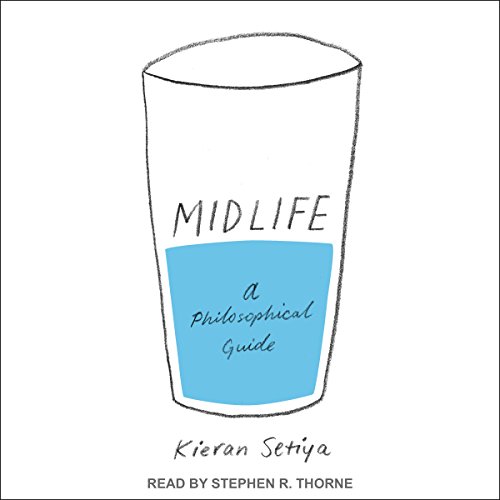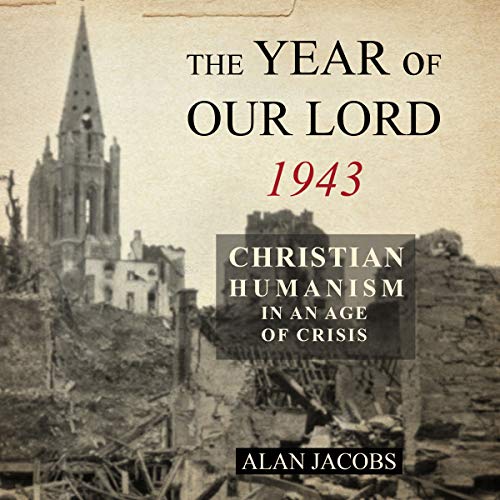
 Audible sample
Audible sample  Playing...
Playing... 
 Paused
Paused  Your audiobook is waiting!
Your audiobook is waiting!
Enjoy a free trial on us
$0.00$0.00
- Click above for unlimited listening to select audiobooks, Audible Originals, and podcasts.
- One credit a month to pick any title from our entire premium selection — yours to keep (you'll use your first credit now).
- You will get an email reminder before your trial ends.
- $14.95$14.95 a month after 30 days. Cancel online anytime.
Buy
-12% $13.13$13.13
Life Is Hard: How Philosophy Can Help Us Find Our Way
 Audible Audiobook
– Unabridged
Audible Audiobook
– Unabridged
NAMED A BEST BOOK OF THE YEAR BY THE NEW YORKER AND THE ECONOMIST
“Life Is Hard is a humane consolation for challenging times. Reading it is like speaking with a thoughtful friend who never tells you to cheer up, but, by offering gentle companionship and a change of perspective, makes you feel better anyway.”—The New York Times Book Review
There is no cure for the human condition: life is hard. But Kieran Setiya believes philosophy can help. He offers us a map for navigating rough terrain, from personal trauma to the injustice and absurdity of the world.
In this profound and personal book, Setiya shows how the tools of philosophy can help us find our way. Drawing on ancient and modern philosophy as well as fiction, history, memoir, film, comedy, social science, and stories from Setiya’s own experience, Life Is Hard is a book for this moment—a work of solace and compassion.
Warm, accessible, and good-humored, this book is about making the best of a bad lot. It offers guidance for coping with pain and making new friends, for grieving the lost and failing with grace, for confronting injustice and searching for meaning in life. Countering pop psychologists and online influencers who admonish us to “find our bliss” and “live our best lives,” Setiya acknowledges that the best is often out of reach. Instead, he asks how we can weather life’s adversities, finding hope and living well when life is hard.
- Listening Length5 hours and 52 minutes
- Audible release dateOctober 4, 2022
- LanguageEnglish
- ASINB09SN772C1
- VersionUnabridged
- Program TypeAudiobook
 Read & Listen
Read & Listen
Get the Audible audiobook for the reduced price of $12.99 after you buy the Kindle book.
People who viewed this also viewed
- Audible Audiobook
- Audible Audiobook
- Audible Audiobook
- Audible Audiobook
- Audible Audiobook
People who bought this also bought
- Audible Audiobook
- Audible Audiobook
- Audible Audiobook
- Audible Audiobook
- Audible Audiobook
Related to this topic
- Audible Audiobook
- Audible Audiobook
- Audible Audiobook
- Audible Audiobook
- Audible Audiobook
Product details
| Listening Length | 5 hours and 52 minutes |
|---|---|
| Author | Kieran Setiya |
| Narrator | Kieran Setiya |
| Whispersync for Voice | Ready |
| Audible.com Release Date | October 04, 2022 |
| Publisher | Penguin Audio |
| Program Type | Audiobook |
| Version | Unabridged |
| Language | English |
| ASIN | B09SN772C1 |
| Best Sellers Rank | #58,852 in Audible Books & Originals (See Top 100 in Audible Books & Originals) #72 in Consciousness & Thought (Audible Books & Originals) #125 in Ethics & Morality Philosophy #311 in Consciousness & Thought Philosophy |
Customer reviews
Customer Reviews, including Product Star Ratings help customers to learn more about the product and decide whether it is the right product for them.
To calculate the overall star rating and percentage breakdown by star, we don’t use a simple average. Instead, our system considers things like how recent a review is and if the reviewer bought the item on Amazon. It also analyzed reviews to verify trustworthiness.
Learn more how customers reviews work on Amazon-
Top reviews
Top reviews from the United States
There was a problem filtering reviews right now. Please try again later.
As a perpetual seeker, I wanted to love this book. I had watched some YouTube videos interviewing the author, and found him engaging, intelligent, and forthright. Perhaps it’s age related, but at 70, after spending a lifetime studying psychology, Buddhism, and a smattering of philosophy, I didn’t find much new here. If you’re not a supersaturated solution of information I’m sure you will find it enlightening.
In the chapter on grief he seems to say that if your grief over the death of a loved one lasts more than 18 months, you should probably get some cognitive behavioral therapy. This is an area where he simply doesn’t understand something and assumes he does. There are a few different types of grief he doesn’t consider: complicated grief, unresolved grief, ambiguous loss, and what we can call “regular grief.” I will not go into a lecture on how these are all very different, but they are. And, even unwittingly, pathologizing people who experience grief differently is a disservice to them and everyone else.
Ultimately, I think this book is great for people with an interest in philosophy, but not enough to become philosophy professors, or for young people contemplating a career in philosophy. It’s certainly readable for an educated audience, whatever their philosophical proclivities. My interest waxed and waned.
One caveat:
In chapter 1, where he says: “You can’t be in pain without pathology,” he is blatantly incorrect. Rather than regale you with every bit of scientific evidence supporting that idea, I suggest you read all the research on how pain is in the brain. (You can start with Dr. John Sarno, Dr. Shubiner, Dr. Hanscom, Dr. Clarke, Alan Gordon, etc. You can also read the Boulder back pain study which showed that psychological intervention had a profound effect on minimizing or eliminating back pain in a majority of people who were trained to use it. Perceived danger pain, neuroplastic pain, tension myositis syndrome, mind-body pain, whatever you call it, the brain is incredibly powerful. If you want to do a deeper dive, check out a book by Dr. Candace Pert called: Molecules of Emotion.)


















